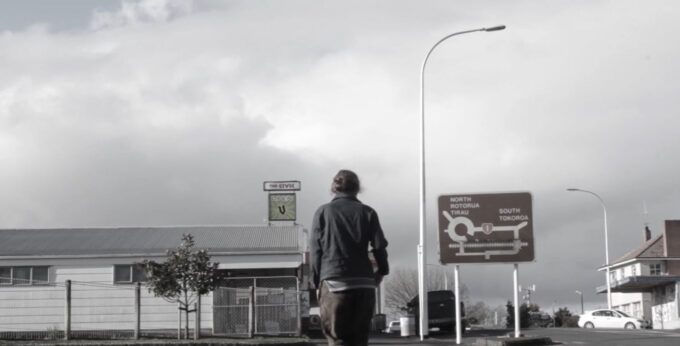
Still from music video for 'Echoes of the Sun' produced through online collaboration of over 50 students. tekura.school.nz
ERO notes in its report that Te Kura’s spiking roll – up 40% since 2018 – is increasingly made up of at-risk students, with referrals often coming from the Ministry of Education, but also Oranga Tamariki and the Department of Corrections – organisations that look after young people with a range of complex high-needs.
“Prior to being referred to Te Kura these learners are often out of education for a long period of time for a range of reasons, such as transience, expulsion and alienation from their local school,” said Jane Lee, ERO’s Deputy Chief Executive Review and Improvement Services.
“A disproportionate number of these under-served learners are Māori. The number of at-risk ākonga on Te Kura’s roll is now equal to that of a large New Zealand secondary school; that’s around 1200 learners.
“We’ve said that Te Kura is doing a good job given its circumstances, but these at-risk ākonga should be better supported through local schooling options and wrap around services.
“As a whole system, we need to work together to do better for these learners,” said Lee.
Since ERO’s last review in 2015, Te Kura has catered for a more diverse student roll. A large proportion of students experience complex social circumstances and psychological issues, with many not succeeding at their local schools.
“Provision of distance education to ākonga in isolated and rural communities no longer defines the school’s primary purpose,” said Lee. “Although the school remains an important access point for over 400 geographically isolated kids, the school is increasingly catering for tamariki with challenges around schooling that go much deeper than geography.”
ERO has made a range of recommendations to both Te Kura and Ministry of Education based on its review findings, with a focus on more collaboration, priority funding reviews and deeper consideration of Te Kura’s role in the New Zealand education system.
Noted was the fact that Te Kura has developed best-practice digital delivery capability and capacity that the wider sector could benefit from, especially in alternative learning environments, like those necessitated by the pandemic during 2020 and 2021.
Aotearoa New Zealand’s largest funded state school provides distance education with a wide range of personalised learning programmes and courses, from early childhood to NCEA Level 3, mostly delivered online. Students can enrol for a few credits in a specific course or for a full-time programme.
“Many other New Zealand schools can learn from Te Kura’s online delivery expertise,” said Lee, “especially given the rapidly changing environment schools have faced since the start of the Covid-19 pandemic, and that they are still responding to, sometimes on a weekly or even daily basis.”
The much-delayed English draft curriculum is now out for consultation, generating discussion from teachers.
Research from AUT demonstrates arts, culture and recreation have positive impacts on all aspects of…
How effective has the school phone ban been in achieving its aims? Researchers from the…
School camps and excursions deliver hands on learning experiences, helping to consolidate classroom learning.
Innovations in AV technologies present new opportunities to engage with students. We look at how…
A new report from the University of Auckland’s Our Voices Project asks young people what…
This website uses cookies.